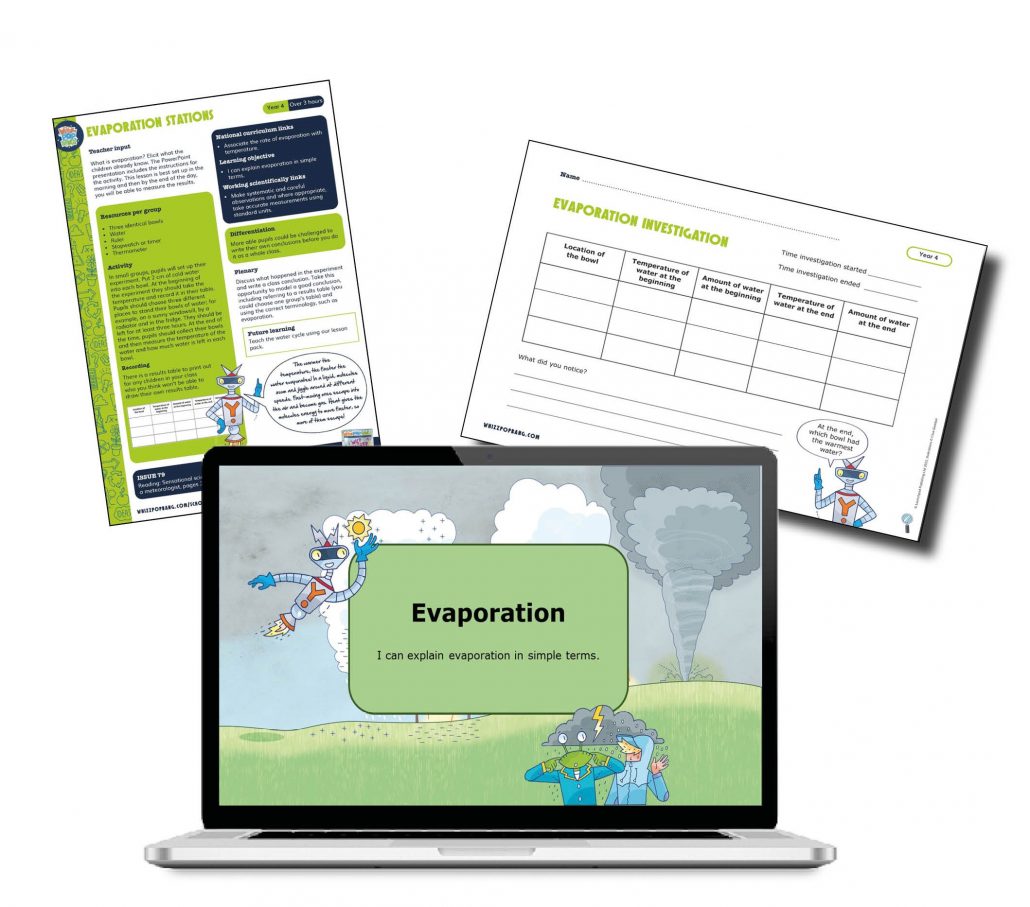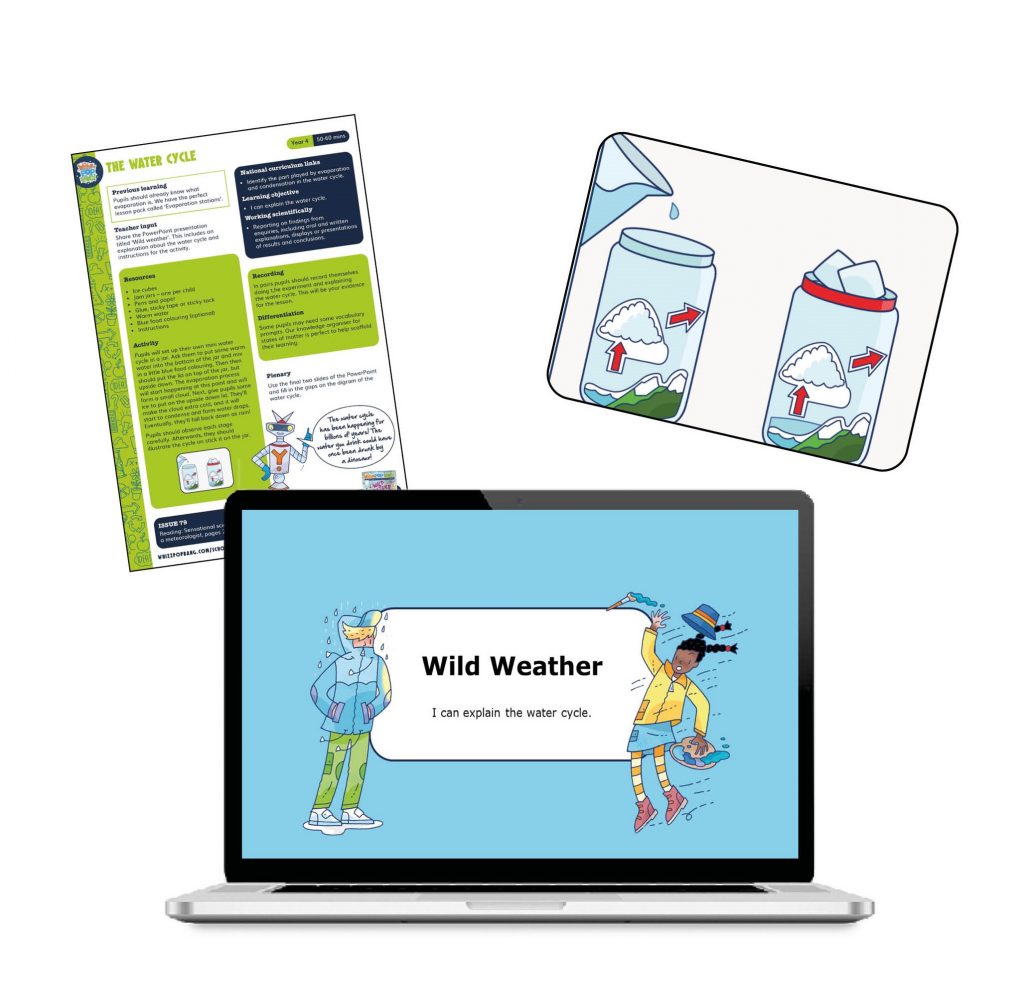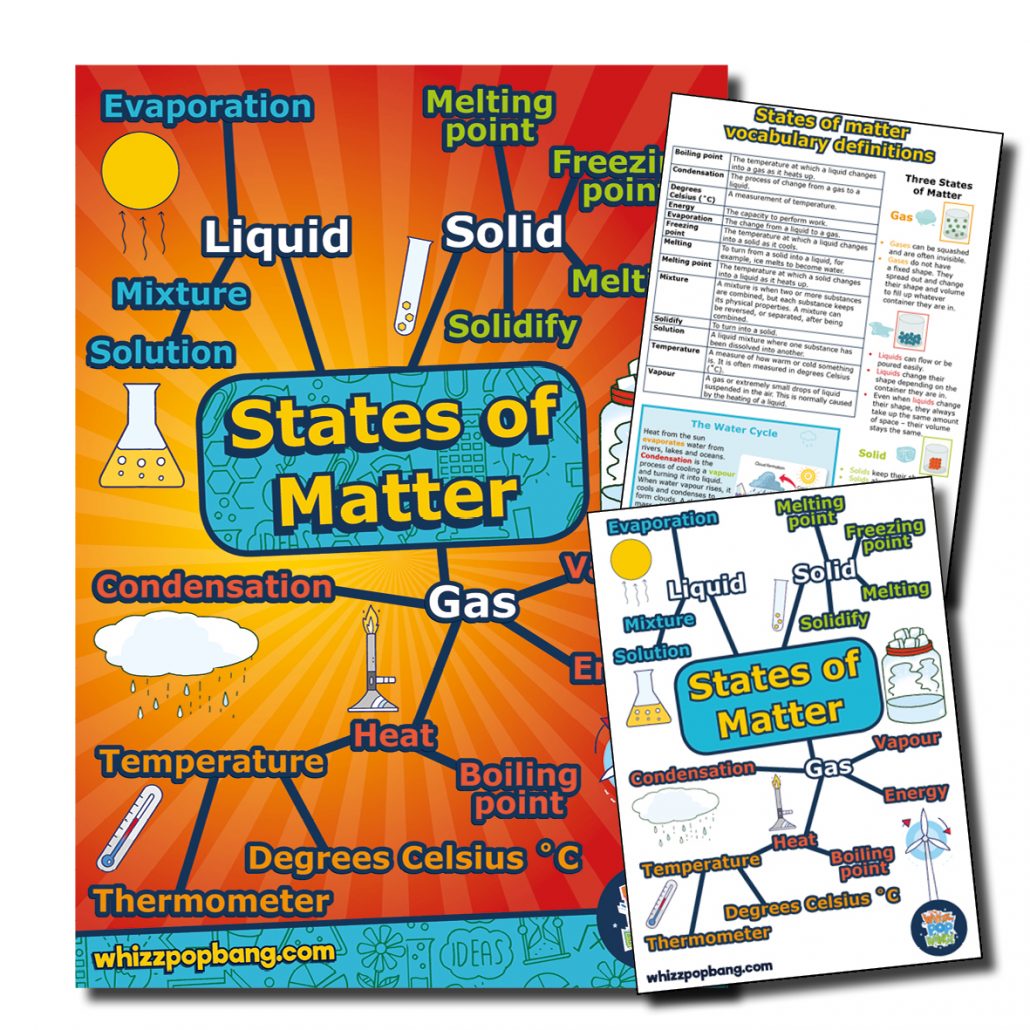Are you looking for planning resources for teaching the water cycle in year 4? Here’s how you can use our new downloadable teaching resources to easily create memorable lessons that produce the sticky knowledge Ofsted will be looking for…
Where to start?
Evaporation is part of the water cycle and it’s important pupils understand what it is before they learn about the water cycle. We have a lesson pack called ‘Evaporation investigation’ which allows pupils to observe what happens to water over a period. All our lesson packs come with a differentiated lesson plan linked to the curriculum and a PowerPoint to help run the lesson.
Our lesson plans often include boxes titled ‘previous learning’ and ‘future learning’; this is to help you understand where the lesson would fit in your medium-term plan. Sometimes we suggest another lesson pack and that is what we have done here. Once pupils understand evaporation, you are ready to teach the water cycle. In this lesson, pupils will make their mini water cycle using items which are easy to resource and inexpensive.
Why make a mini water cycle, rather than asking children to create a labelled diagram?
All pupils learn differently, and to create sticky knowledge children need memorable experiences. The visual and kinaesthetic learners are more likely to remember making a mini water cycle than filling in a worksheet.
How to evidence the lesson
If your planning isn’t enough evidence, pupils could use the Keynote app on an iPad and record themselves describing their water cycle and each stage. If you need evidence for their books, you could print a photo of their mini water cycle and during morning work the next day, pupils could label and annotate it. This would mean that they go back over their learning from the day before, helping the knowledge to stick. Using knowledge organisers can be an additional tool that helps remind children of previous learning or to use as a scaffold – not for answers!
How to make the water cycle cross curricular
There are also lots of ways to embed the pupils’ science learning in your school day. Using science texts in guided reading or whole class reading sessions is an easy way for children to delve further into the subject matter and acquire more knowledge. We have two reading comprehension packs for year 4 linking to weather:
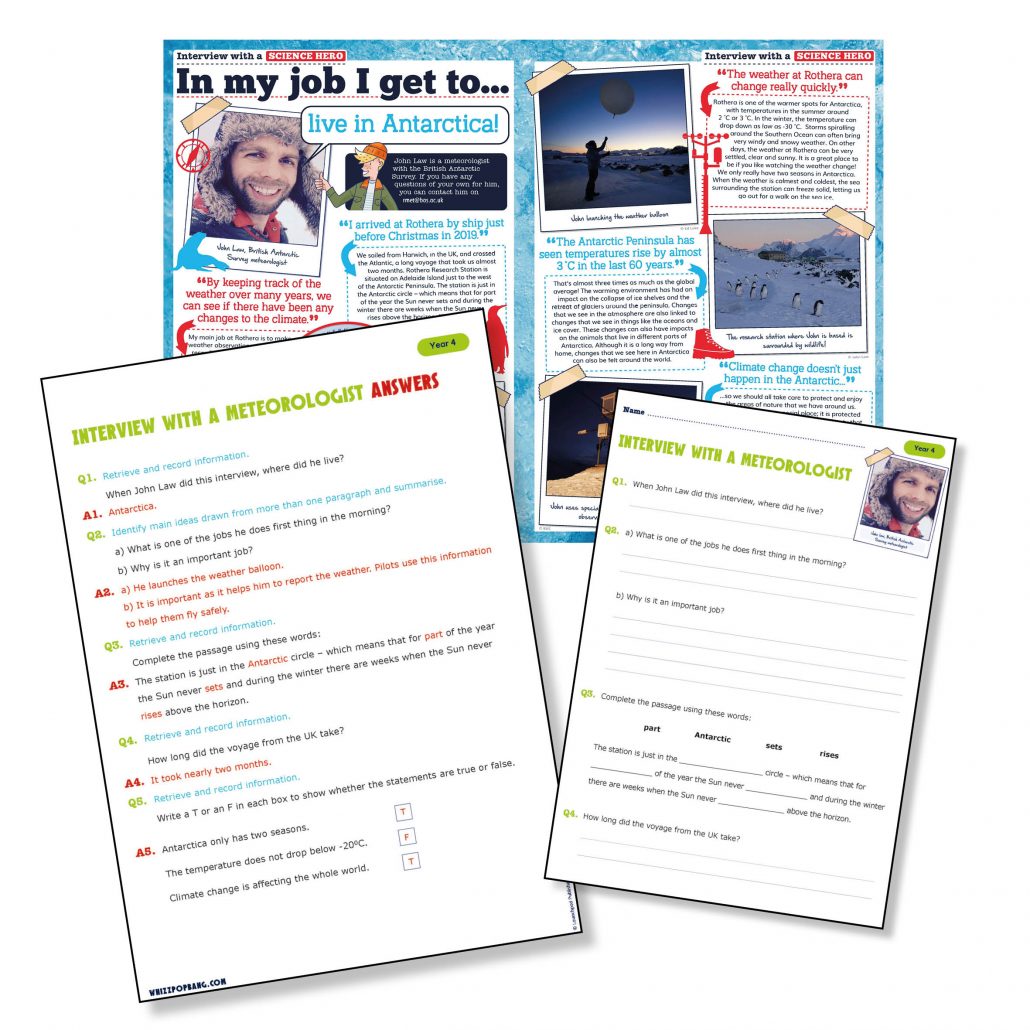
Interview with a meteorologist 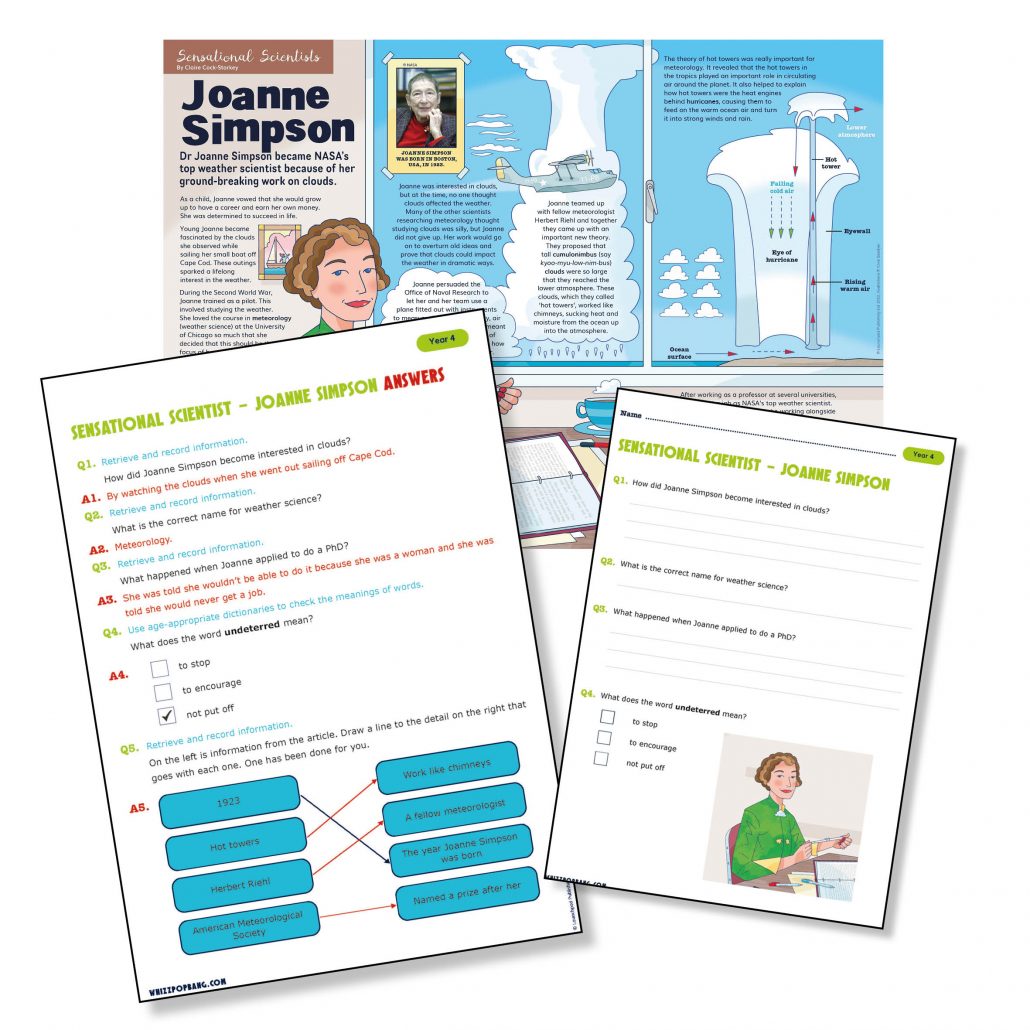
Sensational meteorologist Joanne Simpson
We also have a bank of spectacular science images that are perfect for promoting discussion. They feature a striking scientific image, along with a couple of questions. As you click through the PowerPoint presentation, the answers to the questions will be revealed. Pupils should try to answer the questions as you go. The presentation to use for the water cycle is called ‘Hurricane Florence’. It only takes ten minutes so it can slot into those awkward times in the school day; for example, straight after lunch while you are waiting for everyone to come in.
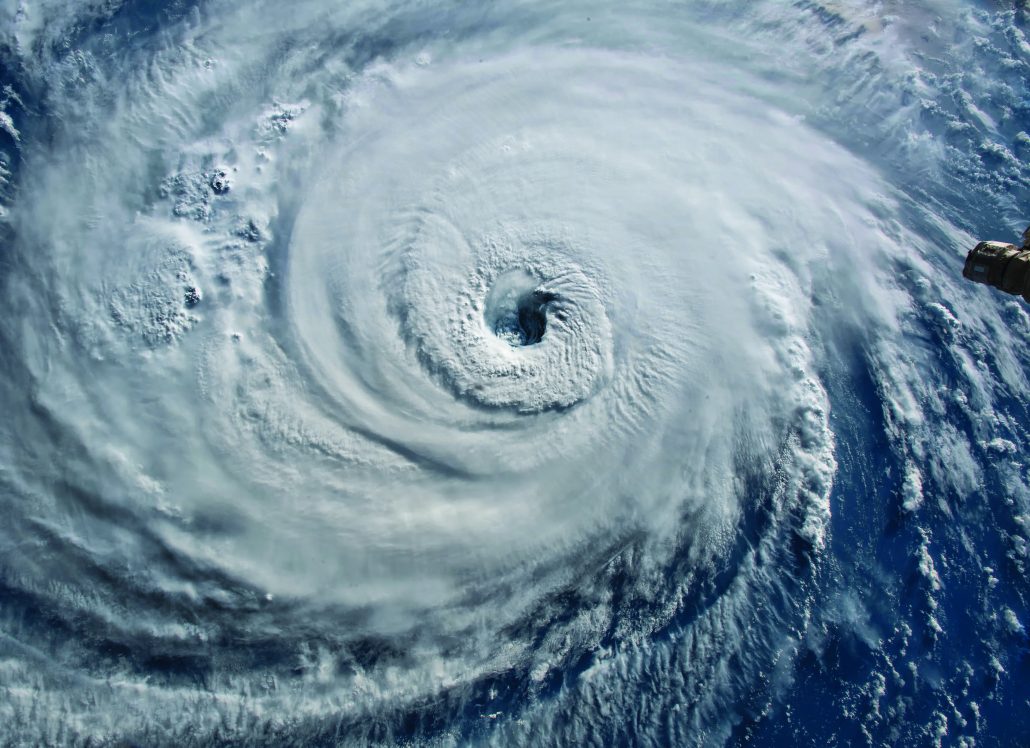
Whizz Pop Bang magazine and teaching resources are brilliant ways to enhance your school’s science teaching:
- We provide downloadable science lesson plans, PowerPoint presentations, hands-on investigations and science reading comprehensions written by primary school teachers.
- Whizz Pop Bang teaching resources link to the National Curriculum, ensuring correct coverage.
- All of our resources are year group specific, ensuring progression between the years.
- We make cross-curricular links to other subjects, such as English, Maths, History, Geography, Art, Design and Technology and PSHE.
Prices from as little as £190 per year for a copy of Whizz Pop Bang magazine through the post each month and whole-school access to our ever-growing library of downloadable teaching resources, with unlimited teacher logins.
We’ve also just launched a new individual membership option so teachers and home educators can access all of our amazing downloadable resources for just £20 for the whole year.
“Engaging colourful resources designed to capture the children’s attention and encourage enquiry and questioning” Year 4 teacher

